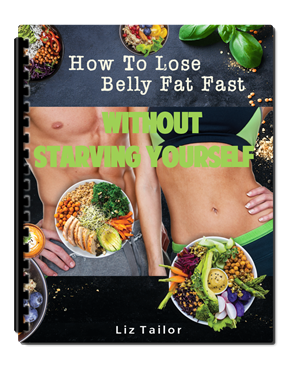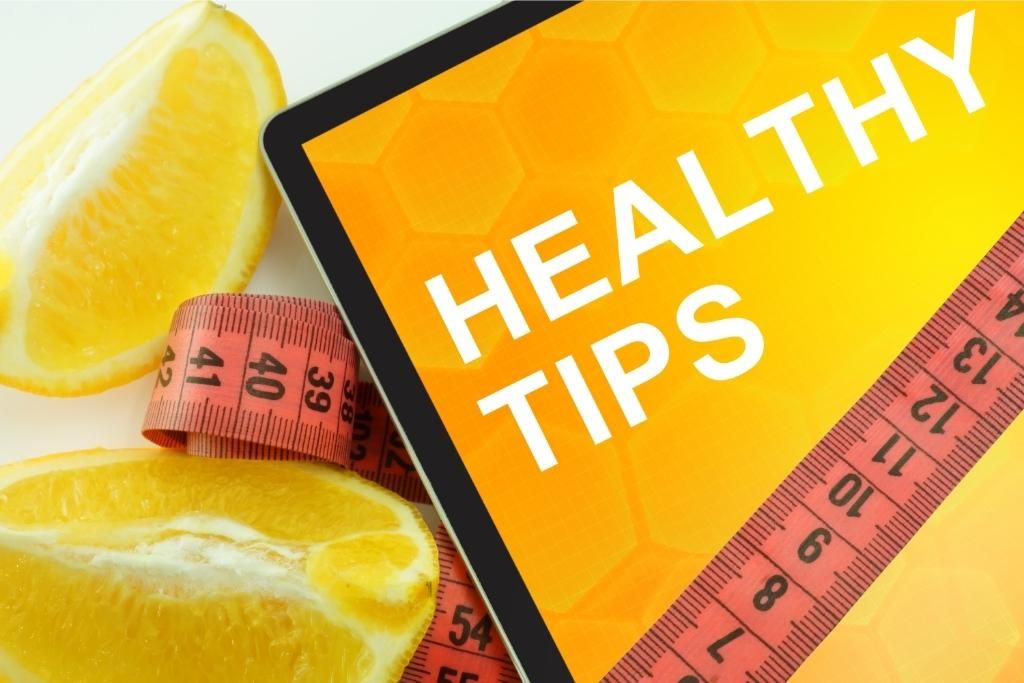Eating is an excellent way to use the food you consume to achieve optimal health, which could potentially prolong your lifespan.
Healthy eating can provide you with stable energy all day long, the vitamins and minerals your body needs to stay strong for activities you enjoy, and maintain a healthy weight.
Being a healthy eater requires you to become both educated and smart about what healthy eating actually is.
You need to know what you’re putting into your body because it’s the only one you have.
Being food smart isn’t all about learning how to count calories or studying labels.
It’s about balanced and moderate eating, consisting of small healthy meals at least 5 to 6 times per day.
Healthy eaters consume many different types of foods, not limiting themselves to one specific food type or food group.
It’s never a good idea to over-consume one type of food and neglect others, as this approach can lead to diet deficiencies.
As you may know, not fueling up with the right nutrients can affect how well your body performs and your overall health.
I’ve stated many times that diet is responsible for at least 80% of our overall health.
Resistance training and cardio help strengthen our muscles, joints, connective tissue, and so forth, but without the proper nutrition, cells will not rebuild stronger after being torn down by those workouts, and this can eventually lead to a compromised immune system.
In this article, I’ve provided you with ten tips to help you transition into a healthy eating lifestyle.
Let’s unpack this now…
1)) Don't Skip Any Meals
Eating three small meals with at least 2 to 3 snacks in between is the ideal way to maintain both energy levels and a healthy weight.
When you skip meals and get hungry, you're more than likely to choose foods that aren't very good for you.
If you are eating away from home, take food with you or know where you can buy healthy food from.
Skipping meals puts your body into a Famine State which causes it to store more calories than it normally would out of fear it won’t receive any nourishment for a long period of time.
Consistently skipping those important meals can actually cause you to gain weight, which totally contradicts the reason for eating healthy.
Tip: Set a timer or alert on your smartphone, watch, or electronic device to remind you to eat every 2 to 3 hours.
Also, eating every couple of hours helps to maintain stable blood sugar levels.
2)) Learn About How to Prepare Foods
Instead of deep frying, try air frying, grilling, stir-frying, baking, steaming, and even boiling.
You should also try fresh or even dried herbs and spices to add flavor to your food.
Before you eat any type of meat, be sure to trim the fat and skin off of it, to cut down on your consumption of saturated fats.
NOTE: No matter how lean a cut of meat is, it still contains some fat. So take that into consideration as you transition into eating healthier.
There are no shortages of healthy recipes out in the marketplace in which you can invest to shortcut your learning curve.
You can even have healthy foods delivered right to your doorstep.
3)) Reduce Your Intake of Processed Sugars
Foods and drinks that contain a lot of sugar are a major source of empty calories. What this means, is that these items contain a lot of simple sugars that cause your insulin levels to spike up.
Then your energy levels come crashing down, which causes you to feel drained out.
Not only can those empty calories cause you to gain weight, they usually do not contain any vitamins or minerals.
If you plan to consume sugary foods and drinks, don't go overboard - limit yourself to 1 a day to avoid setting yourself up for diet failure.
4)) Change the Way You Think About Diets
According to Wikipedia, in nutrition, diet is the sum of food consumed by a person or other organism. The word diet often implies the use of a specific intake of nutrition for health or weight-management reasons.
Oftentimes, people relate the term “Diet” to those weird Fad Diets we become so accustomed to seeing advertised everywhere.
Technically, everyone is on a diet, whether healthy or not.
Fortunately, all food can be a part of a healthy diet, when eaten in moderation.
You don't need to buy any low-carb, fat-free, or even diet foods, as these normally have lots of other added ingredients to replace the carbohydrates and fats.
If you don’t have the willpower to consistently eat your favorite junk foods in moderation, you should consider implementing a Rewards System into your diet.
This will allow you to enjoy your favorites without feeling deprived.
Using this simple diet hack can go a long way toward helping you with weight management and staying healthy.
5)) Working Out On an Empty Stomach
If you hear a rumbling noise in your stomach, it’s trying to tell you something.
Without listening to them, you are forcing your body to run without any fuel.
Before you exercise or do any physical activity, always eat a light snack such as an apple or banana.
The energy boost you may experience will be from the sugars, even if you consume fruits, which contain natural unprocessed sugars. They will be absorbed into the bloodstream and will provide a temporary surge of energy.
This is why you must eat every 2 to 3 hours every day to build up your energy stores so that they are ready for use on-demand.
Don’t forget the “Famine State” your body could easily slip into when you begin skipping meals, causing more calories to be stored than actually needed, which causes unwanted weight gain.
6)) Stop Relying On Energy Bars and Drinks
Although they are fine every once in a while, they don't deliver the antioxidants you need to prevent or reduce the risk of certain diseases.
Fruits and vegetables are your best bet, as they are loaded with vitamins, minerals, fluid, and fiber.
Natural foods that contain a decent amount of nutrients are always better than artificial energy stimulants, which may cause damage to your health over time.
Eat fruits and veggies that contain complex carbs such as yams, sweet potatoes, oats, lentils, beans, quinoa, brain rice, wild rice, etc.
These types of carbs will provide you with sustainable energy levels, unlike the quick-fix energy drinks that cause your insulin levels to spike up and then drop you like a hot potato, leaving you feeling drained out.
7)) Skipping Breakfast
Skipping breakfast is never a good idea, as it starts the day and your metabolism. Your body needs fuel as soon as possible, and without it, you'll be hungry throughout the day.
This approach can set you up to overeat during your lunch breaks and at dinner time, causing you to gain weight.
Be certain to get up early enough to eat a nice healthy breakfast and pack your lunch.
This simple discipline can also help you save a ton of money by not spending $10 or more per day on lunch.
Think about it, if you were spending $10 per day, 5 days per week, that’s $200 per month on lunch alone.
For 12 months, you’d conservatively spend around $2400.
Imagine saving that same $2400 per year for 5 years, you’d have $12,000 in the bank to invest for more growth.
I just wanted to give you something else to think about.
8)) Eating What You Want
Eating healthy and exercising doesn't give you an all-access pass to consume anything you want.
Everyone needs the same nutrients whether they exercise or not to remain healthy.
There has always been a debate over whether the “Moderation Principle” is just an excuse to eat unhealthy food.
Because they are several people that believe all processed foods and meats should be avoided 100% of the time.
I have to tell you that not many people are disciplined enough or are willing to give up their favorite guilty pleasure delights.
I’m of the belief that if you eat your favorite junk foods in moderation, especially if you follow a healthy diet and exercise consistently, you’ll do just fine.
Of course, there are exceptions based on a person’s health, especially if they’re dealing with health issues where junk foods even in moderation could cause more harm.
If you’re in fairly good shape and all things being equal, applying the Moderation Principle using a reward system is the way to go.
9)) Not Enough Calories
Although losing weight involves calories, losing it too quickly is never safe, and can lead to the loss of lean muscle mass.
What you should do is aim for a 1 to 2 pounds per week fat loss.
Always make sure that you are getting enough calories to keep your body operating smoothly.
If you start dropping weight too fast, eat a bit more food.
Remember, not consuming enough calories can cause you to gain weight and slow down your metabolism.
10)) Reduce Your Consumption of Soda and Alcohol
Water and fresh natural juices are the best beverages an active person can consume.
You should drink often, and not rely on thirst as an indicator.
By the time you get thirsty, your body is already beginning to dehydrate.
It’s best to be proactive with your consumption of fluid to avoid dehydration because this can cause you to overeat and feel sluggish.
Water is involved in every bodily function, so you must consume between 1/2 to 1 ounce of water per pound of body weight per day.
Besides, sodas and alcoholic beverages are packed with sugars and empty calories that can cause weight gain if consumed in large quantities.
So, replace those sugary beverages with water and natural fruit juices.
Drink more water than juice, since natural fruit juices contain calories, over-consumption can also lead to weight gain because the body absorbs what it needs and then store the rest as fat.
Tip: To help naturalize acid in your body and put it in an alkaline state, I highly recommend mixing liquid chlorophyll in your water.
Conclusion
Eating healthy requires a delicate balance between flexibility and discipline. You might eat too much or not enough, or consume foods that are sometimes more or less nutritious.
However, you should always fuel your body and mind regularly with enough food to keep them both strong and alert.
Healthy eaters are good problem solvers that have learned to take care of themselves by using good judgment and consistently making wise food choices.
They are always aware of what they eat and know the effect that certain food will have on their bodies.
When someone is unable to take control of their eating habits, they are also likely to spiral out of control with other aspects of life.
A person that’s unhappy with their physical appearance may attempt to fill that void with fixations such as shopping, emotional eating, bad or out-of-the-norm behavior, etc.
Keep in mind that completely restricting the foods you enjoy is usually never a sustainable approach to transitioning into a healthy lifestyle.
This causes resentment towards healthy food due to being deprived of one’s favorite junk food.
Healthy eating is not a fad diet; it’s a way of life.
If you've thought about making your life better, healthy eating is just the place to start.
A healthy body is the foundation for a rich and exciting life.
No one wants to be the richest person in the graveyard.
The best way to have the most fulfilling life possible is to combine health, wealth, and spirituality.
Don’t put off eating healthier, start today!
Download Our Free E-book!







